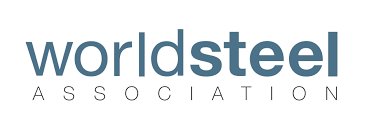
|
worldsteel Safety and Health Recognition Programme 2016 Brussels, 21 October, 2016 – As part of its commitment to the highest safety and health standards, the World Steel Association (worldsteel) recognises excellence in six of its member companies for delivering demonstrable improvements in safety and health for steel industry employees. Henk Reimink, Director, Industry Excellence at worldsteel, said, “Membership of worldsteel brings the benefit of being able to share best practices, which is of crucial importance in safety and health, where setting high standards can make a real difference to our employees’ and contractors’ lives. Not only does the Safety and Health Recognition Programme facilitate this, but it also shows that the steel industry is committed to tireless improvement in this discipline and it is rewarding to see colleagues continue to strive for excellence. My sincerest thanks to the companies recognised this year for making a difference and for showing the world that steel is responsible and can be made in a safe way.” The recognised practices of the member companies are assessed on four criteria:
The recognised members companies are:
ArcelorMittal, Luxembourg – Maturity Culture: Although all traditional safety measures were in place at ArcelorMittal’s Belval plant in Luxembourg, indicators showed that safety standards were slipping. The introduction of the ‘Maturity Project’ aimed to bring about an ambitious culture change at the plant to ensure the highest safety standards were at the forefront of everyday production processes. A large-scale leadership training programme was implemented to ensure that the plant leadership had the necessary technical knowledge and soft skills to empower staff.
Arrium, Peru – Driver Awareness Programme: Moly-Cop Peru, a member of Arrium, carried out a review that showed 87% of road transport incidents were the result of unsafe driver behaviour. They developed a Driver Awareness Programme (DAP) that engaged and trained drivers on how to make sure they return home safely. It also involved setting up structured communication channels for swiftly and accurately learning from incidents, and a formal audit programme to verify compliance with expected safety practices. The DAP has resulted in a 44% reduction of road transport incidents over the last three years.
Gerdau, Brazil – Hydraulic arm for roll shop: Safety managers at Gerdau’s Ouro Branco plant noticed that an overhead crane used in the new rolling mill every time the rolls needed to be removed for grinding unnecessarily exposed shop floor employees to the risk of falling objects. Eliminating this risk entirely by replacing the crane with a hydraulic arm made the shop floor safer, with subsequent significant improvements in Ouro Branco’s Safety Cultural Index (SCI).
HADEED, Saudi Arabia – Upgrade of ladle furnace dedusting system: The concentration of particulate matter in the air at HADEED’s long product facility during steel refining operations exceeded recommended levels. Management initiated a specialised project that upgraded equipment where necessary and optimised the overall production process. The concentration of particulate matter in the air decreased significantly from 18.8 to 6.62mg/m3.
Tata Steel, worldwide – Leadership engagement in the safety excellence journey: Tata Steel’s Felt Leadership Programme aims to put safety at the forefront of all activities and to demonstrate to all employees that when it comes to safety incidents, high level management is visibly ‘committed to zero.’ This has involved a number of initiatives with management and senior union leaders leading campaigns such as ‘Find it, Own it, Fix it’, which have led to a decrease in Tata’s Lost Time Injury Frequency Rate (LTIFR).
Ternium, Mexico – Minimising fire hazards in the painting line: Ternium’s Juventud plant carried out a project in order to reduce fire risk during the painting process in the painting line when handling, preparing and applying paint. In addition to establishing an emergency response procedure, monitoring systems were installed around the ovens, improvements were made to ventilation and fire protection systems were installed in storage areas.
• The World Steel Association (worldsteel) is one of the largest and most dynamic industry associations in the world. worldsteel members represent approximately 85% of the world’s steel production, including over 150 steel producers with 9 of the 10 largest steel companies, national and regional steel industry associations, and steel research institutes. |
